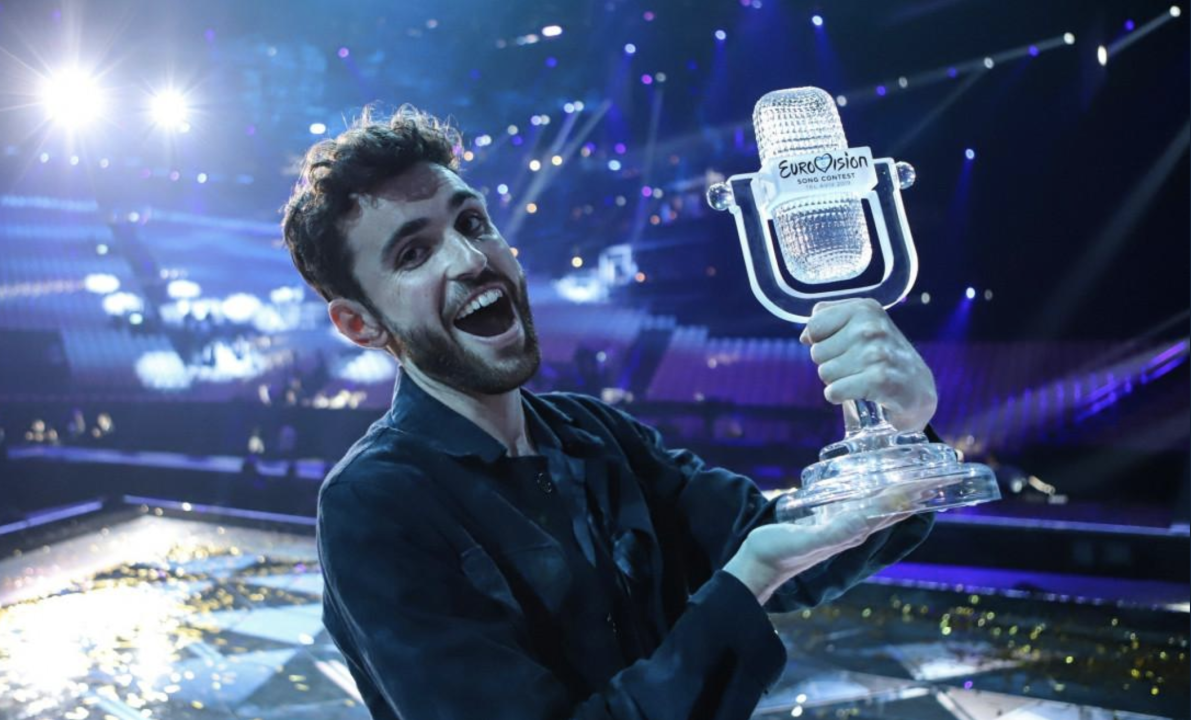Yes, Eurovision is political – but for 20 years now, this fact has been used as an excuse to explain why Britain bombs. Everyone hates us, runs the complaint, the system is rigged, there’s nothing we can do. But as we digest the latest embarrassment (we just finished last – again) it’s hard to escape a simple point. The UK entry does badly because it tends not to be as good as the others. If the English-singing Duncan Laurence (pictured, above) had been singing for the UK instead of The Netherlands, he’d still have won.
We are guaranteed a place straight into the final, as the UK pays so much money to the European Broadcasting Union. This has made us lazy, fielding songs that would never have made it through the semi-finals – a gauntlet most other countries have to run. In denies place in the final to smaller countries who put in more effort and have (far) better songs. Ester Peony’s On a Sunday, for Romania, never made the final and it’s one of the best songs of the competition. Going straight through denies the UK artist the experience of multiple national TV heats or a massive Eurovision warm-up. The poor UK singer is sent blinking straight into the final, without any of the resources, practise or support needed to win. We will keep faring badly in Eurovision until we start to put in the effort of countries a tenth of our size.
The first test for a song is popularity at home. The Dutch, Italian, Swedish and Icelandic entries for Eurovision all hit no1 in their home charts before they made it to the Eurovision top 10. This indicates genuine national endorsement: but if a song doesn’t get people going at home, who would anyone think it will be popular abroad? The 2019 UK entry made it to no72 in the Scottish charts, and didn’t even enter the UK charts. I’m not sure you can blame politics – or Brexit – for that.
Sweden was once in this hole, in 2002. It decided to pull itself out, changing the way it chose the winner. SVT took its public service role seriously and made Melodifestivalen a countrywide hunt for talent, with heats all over: the production values are now so high that MelFest is watched globally and is often better than the Eurovision final. Artists are tested on performance and staging from the get-go, and whether they can work a stadium audience and a TV audience at the same time. Sweden’s heats had 28 entrants, Italy (which finished second) had 18. Even the Australians had ten.
The guy who saved Sweden’s system and invented MelFest, Svante Stockselius, told me a few years ago that the problem was that the contender is selected by a broadcaster who sneers at the contest. “You joke at it, you say it’s Eurotrash and you get Graham Norton and Terry Wogan saying this is just to laugh at,” he said. “The day when this country takes this contest for seriously, that’s also when you become successful. If the BBC doesn’t take it seriously then maybe you should ask ITV to do it. They are also a member of the EBU.” I disagree: the BBC can certainly do this, if they want to. They have the budget. But they’d have to decide if they’re willing to try.
Yes, Eurovision is cheesy: that’s the whole point. It’s a laugh. It’s schlager, it’s cabaret – it’s entertaining. An evening to get together with friends and family, to laugh with the acts as well as laugh at some of them. In the UK, it’s deeply unfashionable in polite circles, but millions watch and love it. It’s wacky and weird: Britain can do wacky and weird. We have the talent, people who can do any kind of music you can name. The Danish winner a few years back, Emmelie de Forest, was trained by a Scot. Måns Zelmerlöw, who won for Sweden, moved to London to advance his career because it’s Europe’s musical capital. Watched by 200m, Eurovision the most-watched TV event in the world that doesn’t involve sport. And each year, it looks as if Britain can’t be bothered to try. Perhaps next year, we might start doing so.








Comments